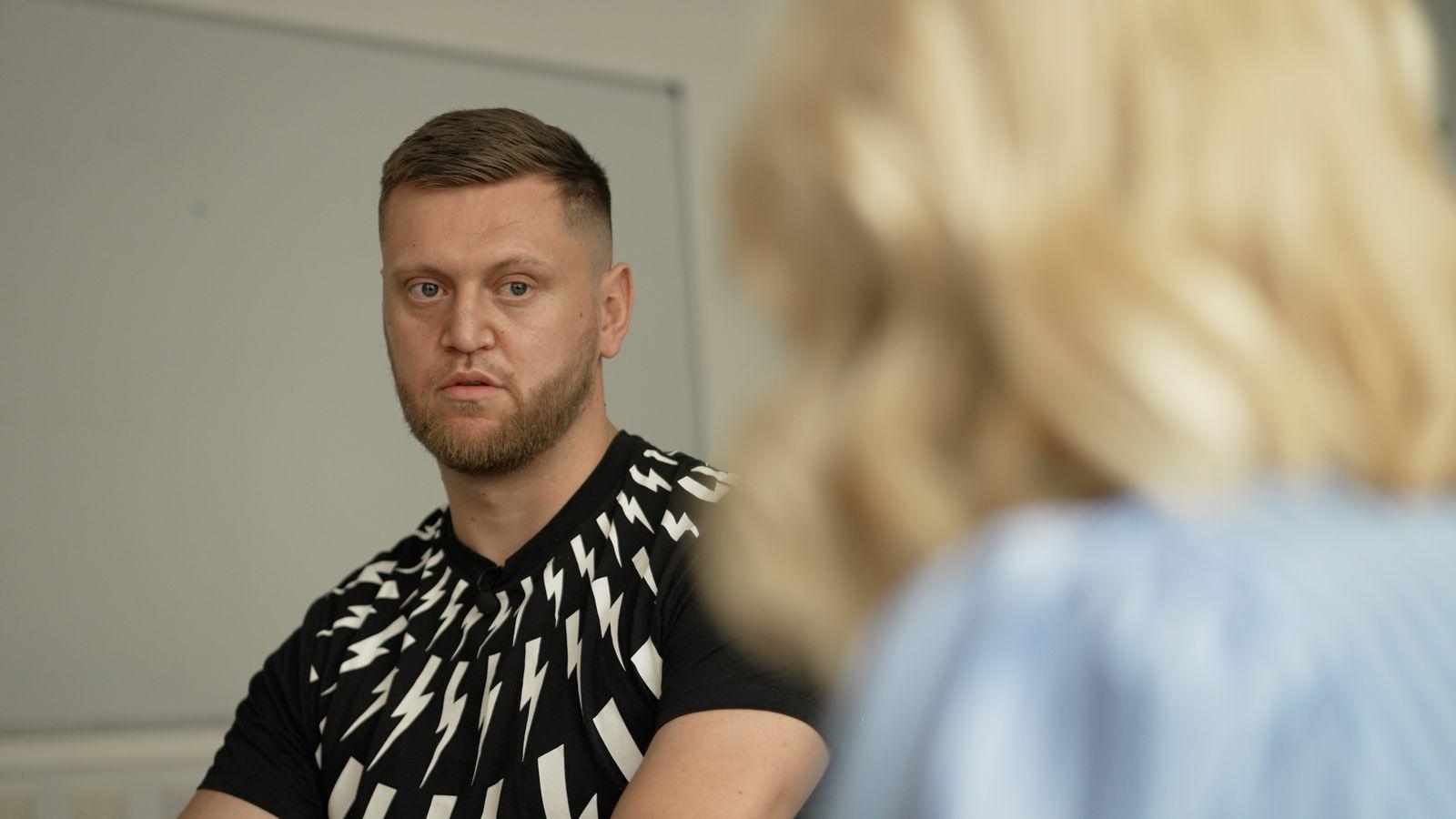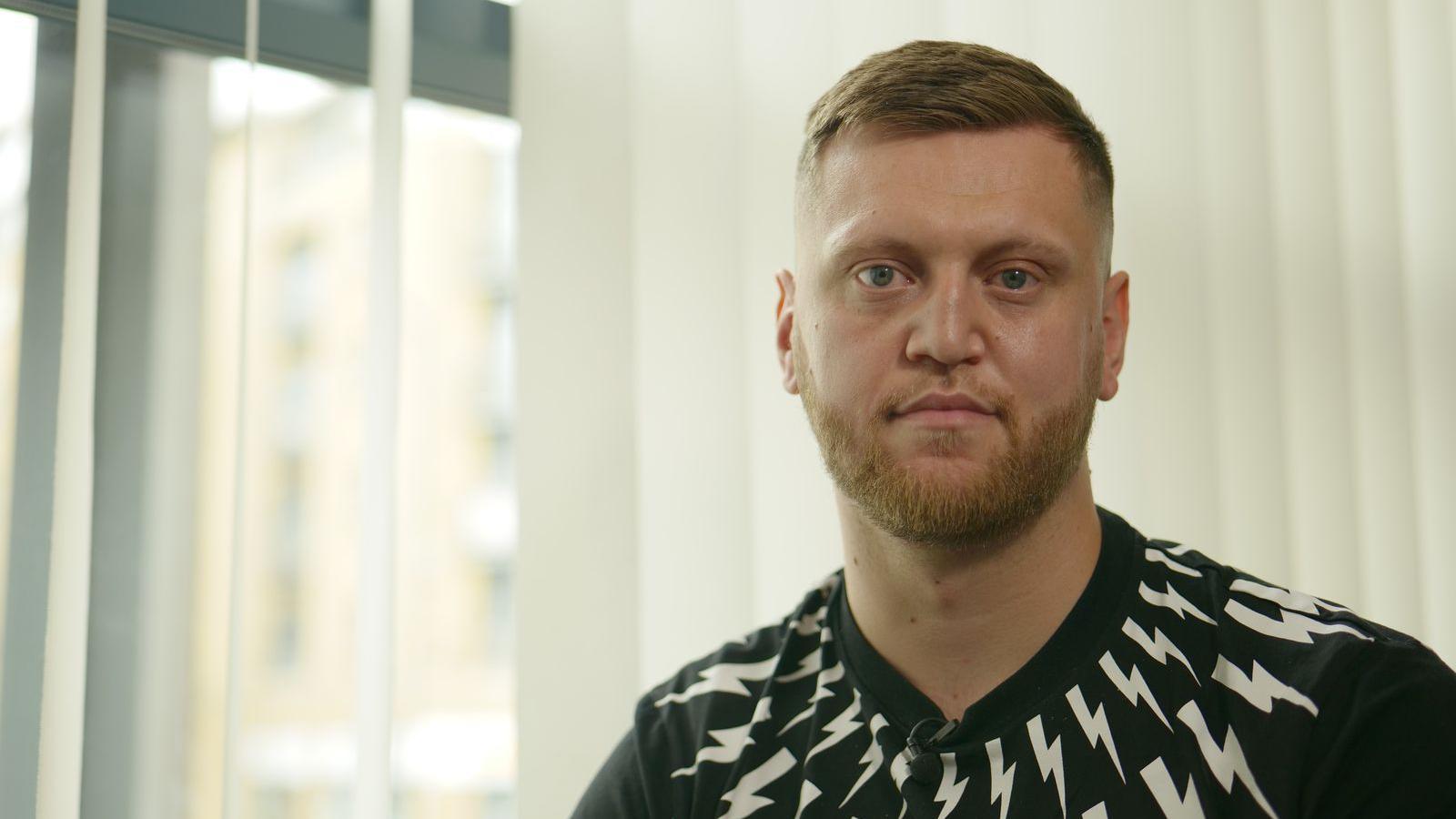Judge-supervised drug treatment sentences expanded

Kane Lawrenson has been meeting a judge at Bristol Crown Court as part of a pilot of the new sentence
- Published
More criminals will get drug and alcohol treatment under the close supervision of a judge as a new type of sentence is expanded.
Offenders will meet a judge weekly or monthly after being sentenced, to monitor their progress in what are known as Intensive Supervision Courts, modelled on a similar system of "problem-solving courts" in Texas.
Judges can still send offenders to prison if they stop complying with the order, and ministers acknowledge the option is only appropriate for a carefully-selected group.
The expansion is the first of a series of new measures being rolled out after a landmark sentencing review to tackle prison overcrowding.
Prisons Minister Lord Timpson told the BBC: "This is often tougher than going to prison.
"They're having to work every day to prove that they're not taking drugs, they're not drinking, and they are going through all the courses that we're putting them through."
Pilot schemes of the system were introduced by the last Conservative government, but are seen by the Labour government as an important part of the future of sentencing.
Lord Timpson said he was "clear that it's working, so we want to roll it out".
Crown Court judges will be tasked with meeting the offenders under the new sentence.
BBC News was allowed to sit in on a hearing, which would normally be in private, taking place at one of the pilot schemes in Bristol.
At Bristol Crown Court, Judge Moira Macmillan was reviewing the case of 28-year-old Kane Lawrenson.
Lawrenson narrowly avoided prison in April after pleading guilty to using violence to secure entry. Instead, he was sentenced to a two-year intensive programme designed to stop him using drugs.
He has to see the judge regularly so she can check on his progress with his probation officer and his drugs worker.
This time, he had received a very positive report and the judge was full of praise for him.
"It's incredibly impressive," Judge Macmillan told him. "It's brilliant to see you looking so well."
Much of the hearing was a one-to-one conversation between the judge and Lawrenson in which they maintained eye contact and often smiled.
Lawrenson said he had occasionally slipped up in the last month but had managed 14 days completely clean.
He added: "I'm feeling the most positive I have for years."
The judge, who did not wear a wig for the relatively informal hearing, said "everyone has bumps in the road" and encouraged him to start thinking about his future. She said she did not need to see him again for four weeks.
It is all in stark contrast to Lawrenson's last seven years, in which he has been sent to prison four times.
All of his offences - from reckless driving to supplying class A drugs - were linked to his own drug use.

Lawrenson said he felt much better about himself and his future after taking part in the pilot
After his Intensive Supervision Court hearing, Lawrenson said he was in a "10 times better" place now than he was just a few months ago - when he was "pretty much using every single day".
"I'm really excited for the future, to be honest.
"No longer am I waking up looking to see if there's a plate with residue on it, looking to see who can I get more off, or whatever.
"Now I'm waking up thinking, right, let's have me protein shake. Let's have me bowl of oats. What gym am I going to?
"Every day I can go to sleep and think, 'you've actually made something productive out of the day'. Like, 'you ain't just sat there sniffing line after line after line.'"
A recent evaluation of the pilot schemes in Liverpool, Teeside and Birmingham found that convicted criminals with significant addiction issues on the schemes were receiving a clean drug test two-thirds of the time.
The Ministry of Justice says this is "clear evidence that the model is working. "
Asked about the extra money that the pilot schemes had cost, Lord Timpson said this had to be considered against "£53,000 a year for someone to be in prison".
"That's an awful lot of money.
"What we need to do is to make sure we can invest in certain offenders now, to make sure they don't spend years in prison and create further victims in the future."
Zara McKee, who is Lawrenson's advanced recovery practitioner, said there was real evidence that people were offending less while on the scheme.
"Whether that be because they do feel there's more people kind of keeping a close kind of eye on them, so be it.
"But I do think more of that is because they feel supported, and they are more genuinely inclined to want to make changes."